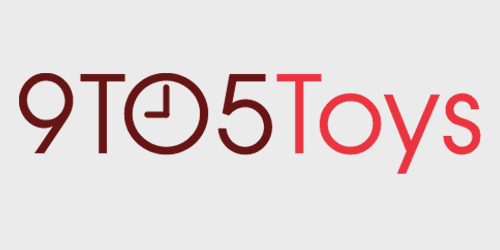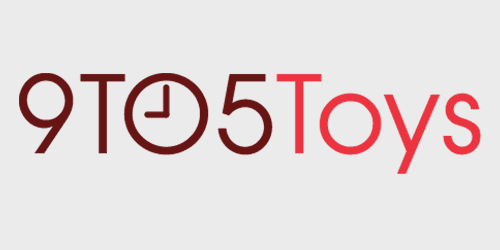
Credit cards can be a huge benefit, but when used wrong, can also be a big detriment. If you’re wanting to sign up for a credit card, but have a few questions, we’re here to help. Below, you’ll find a frequently-asked-questions form (FAQ) with some of the most common questions surrounding credit cards. If your question isn’t answered below, be sure to let us know what you’d want to know in the comments below!
What happens if I just pay minimums instead of my statement balance?
Once you start spending money on a credit card, you’ll see two main payment options: minimum or statement balance. These two options have very different outcomes. If you choose to pay the statement balance every month, you’ll enjoy never gaining a single cent of interest on your card. However, even paying just $1 below the statement balance will begin to accrue interest.
The real danger is when you pay only the minimum payment. While you are paying the card off, it’ll happen very slowly. Checking your statement from the credit card company will give you an estimated payoff window should you make just minimum payments. Often times, minimum payments can begin to only cover interest, essentially. Each month you could get a $50 interest charge, and have a $60 minimum payment, meaning that you’re only paying interest and then $10 off of the card balance itself.
Something else to note is that paying minimum payments can have a neutral or negative effect on your credit score. If you’re constantly making minimum payments and continuing to charge your card, then your credit score will likely reflect that negatively. However, if you’re not using the card and making minimum payments, your score likely won’t be very impacted by that.
This isn’t meant to scare you at all. In fact, just the opposite, as this credit card FAQ is designed to inform you about what could happen. Making minimum payments is sometimes a necessity, especially with the way things are in the world right now. However, as soon as you can, start throwing more money at that card and the interest charges will begin to drop like a rock, and you’ll quickly find that your card is paid off once again, gaining you zero interest.

Can I raise my credit limit while I still have a balance?
If you already have a balance on a card, it is possible to get a credit limit increase. While most credit card companies will give you major increases if you keep the card paid off, you’ll still be able to get a credit line increase even if you have a balance. Your increase amount will likely be smaller than if you had the card paid off, but sometimes, even an extra $500 can help you get through the month easier, without worrying about paying the card off mid-way through. Just keep in mind that you’re likely going to see a small credit score ding when you do this, but it won’t be staying on your report for too long.
My 0% interest is about to run out and my card isn’t paid off, what now?
If you have a card that offers a 0% introductory APR, or 0% financing for a certain amount of time, then you’ll really want to pay attention to that end date.
Most cards that offer 0% interest have a clause that states if the balance isn’t paid in full by the promotion’s ending date, you’ll be charged the interest amount from the first time that charge appeared on the card. Let’s say you use a Best Buy credit card to purchase a refrigerator for $1,000 on financing. Over the period, you pay off $995 of it, and then the special financing period ends and you still have $5 left. Well, you will get hit with an interest charge for the full $1,000 for the full time it was on the card, not just the remaining $5 for the one month until it’s paid off.
This shouldn’t scare you, but it just serves as a reminder that you’ll want to pay close attention to the terms of your card as well as when the financing date ends, that way you can avoid any undue fees.

Is it worth upgrading to a higher card if there’s an annual fee?
This is a question that I love to answer. Sometimes, people will see a card that has 1% cashback and $0 annual fee, and another that has up to 6% cashback, but a $95 annual fee, and think “There’s no way I’m paying yearly to have a card!” Well, if you really break it down, the extra cashback can easily offset the yearly charge you pay.
American Express has two main cashback cards to choose from, the Blue Magnet Card and the Blue Cash Preferred Card. The Blue Magnet Card has a $0 annual fee and gives 1.5% cashback on every purchase you make. It has the same great American Express features like the Blue Cash Preferred card, but no annual fee. However, the Blue Cash Preferred card has a $95 annual fee and offers tiered cashback in the form of 1% on all purchases, 3% on some, and 6% on others.
With the Blue Cash Preferred card offering 6% on groceries, with a monthly budget of $500, you’d get around $360 in cashback over the course of a year. And that’s if you just used this card for grocery shopping, and spent around $6,000 per year on that. Just in that one area, you’ve made the $95 annual fee back, and then also gained an additional $265 on top of that. And that’s before you add in other spending you might do throughout the year.
This is just one example of how an annual fee can be worth it. There are numerous other examples we could give, but generally, they all come back to the same answer: just check the card out a bit before choosing. If you fly often on Southwest, then picking up the higher-tier card with a more expensive yearly fee is worth it because you’ll get $75 in travel credit plus 7,500 bonus points, which well offsets the yearly cost. Or, if you get an American Express Platinum Card with its very lofty $550 per year fee, but now have access to airport lounges around the country, it could be well worth the charge if you travel often.
Looking for something else?
Now that you’ve read through our credit card FAQ, why not take a look at some cards to make a choice as to which you should sign up for? We’ve got a roundup of the best cards in every category, as well as some of our favorite 0% interest cards. Plus, we recently outlined the best cashback cards, if that’s something you’re into. For our comprehensive list of the best credit card deals around, check out our guide, which can be found here.
We also recently went over the best Amazon cashback cards to grab if you love shopping at the online retailer. However, if you prefer Target, we’ve also got a guide that helps you earn the most with purchases there, too.
FTC: We use income earning auto affiliate links. More.





Comments